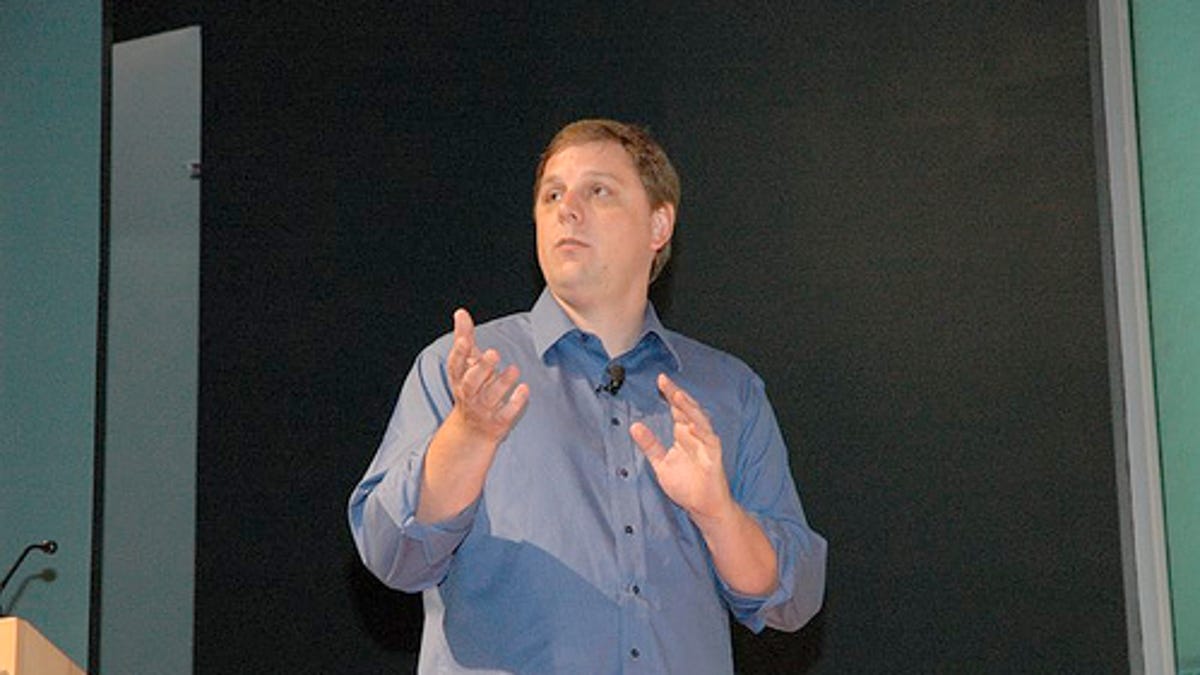Arrington: 'Demo needs to die'
TechCrunch founder said that while there was little choice of when to schedule TechCrunch 50, he thinks that Demo is an antiquated pay-to-play model.

The scheduling of the TechCrunch 50 conference, which was announced Wednesday, has pit it directly against DemoFall, a long-standing event geared toward entrepreneurs and their products.
And while TechCrunch founder Michael Arrington and CEO Heather Harde insisted in interviews late Wednesday that their selection of September 8-10, 2008, as the dates for TechCrunch 50 was about the availability of an affordable San Francisco venue, Arrington also made his feelings about Demo clear.
"Demo needs to die," Arrington said in the interview. "It's just an old-school model...It clearly involves pay to play, and what we're offering is better."
By "pay to play," Arrington was referring to the five-figure fee that all companies that present at either Demo or DemoFall must pay for their spots.
TechCrunch 50, by comparison, will not charge the companies that present.
Demo Executive Producer Chris Shipley expressed disappointment on hearing the news that TechCrunch 50 had been scheduled for the same dates as DemoFall.
"I think that certainly...TechCrunch 50 is a great venue for young companies," Shipley said by phone from Madrid, Spain. "But to put it up against Demo means those companies are now going to be competing for attention, and I just don't see how that's good for entrepreneurs."
One problem with that argument, however, is that since TechCrunch 40--the slightly smaller 2007 precursor to TechCrunch 50--companies have had to choose one show or the other.
That's because both TechCrunch and Demo effectively require participating companies to be launching themselves or their products for the first time.
Still, any controversy over the timing of the two events is going to focus on the fact that TechCrunch 50 will take place on the same dates as DemoFall--Arrington told me he wasn't aware of the dates and that Harde had been in charge of scheduling--even though DemoFall's dates had long been announced.
"Venues are really hard," Arrington said of the location for TechCrunch 50, San Francisco's Design Center Concourse. "We really like this venue (and) this was the only dates we could get it."
He elaborated, saying that he and his fellow organizers needed to find a venue in San Francisco that was affordable and that could hold between 1,000 and 2,000 attendees.
"There aren't many venues (in San Francisco) where you can get 1,000 to 2,000 people sitting down," Arrington said.
While Arrington would not say how much money TechCrunch 40 made in 2007, he did say it was profitable.
He said that of some 1,100 attendees at the 2007 event, approximately 800 paid full price of $2,500, while about 100 students paid $490. That means the event brought in around $2.5 million in ticket sales alone, not counting what sponsors gave.
Shipley wouldn't say what DemoFall 2007 earned, but did say that the majority of the 650 to 700 attendees had paid. With tickets for that event costing $3,000, that means DemoFall likely earned well into seven figures as well, just from tickets. Presenting companies likely paid well more than $1 million more to demo.
But Arrington insisted that his event is better for early-stage entrepreneurs because presenting companies pay nothing to demo at TechCrunch 50.
For her part, Shipley said she appreciates that TechCrunch 50 doesn't charge its participating companies, but added that many companies that exhibit at Demo are established firms for whom the fees are not onerous.
In fact, she said the fees may well establish those that pay it as serious about their products in the minds of the press and venture capitalists that attend.
Still, she suggested Arrington's assertion that Demo needs to die is unfortunate.
"I'm not certain why it must die," Shipley said. "I think that there is a lot of room in the market for products and services that support entrepreneurs. And I don't see how it's a benefit to (the entrepreneurial ecosystem) to kill off a platform that's all about supporting entrepreneurs."

